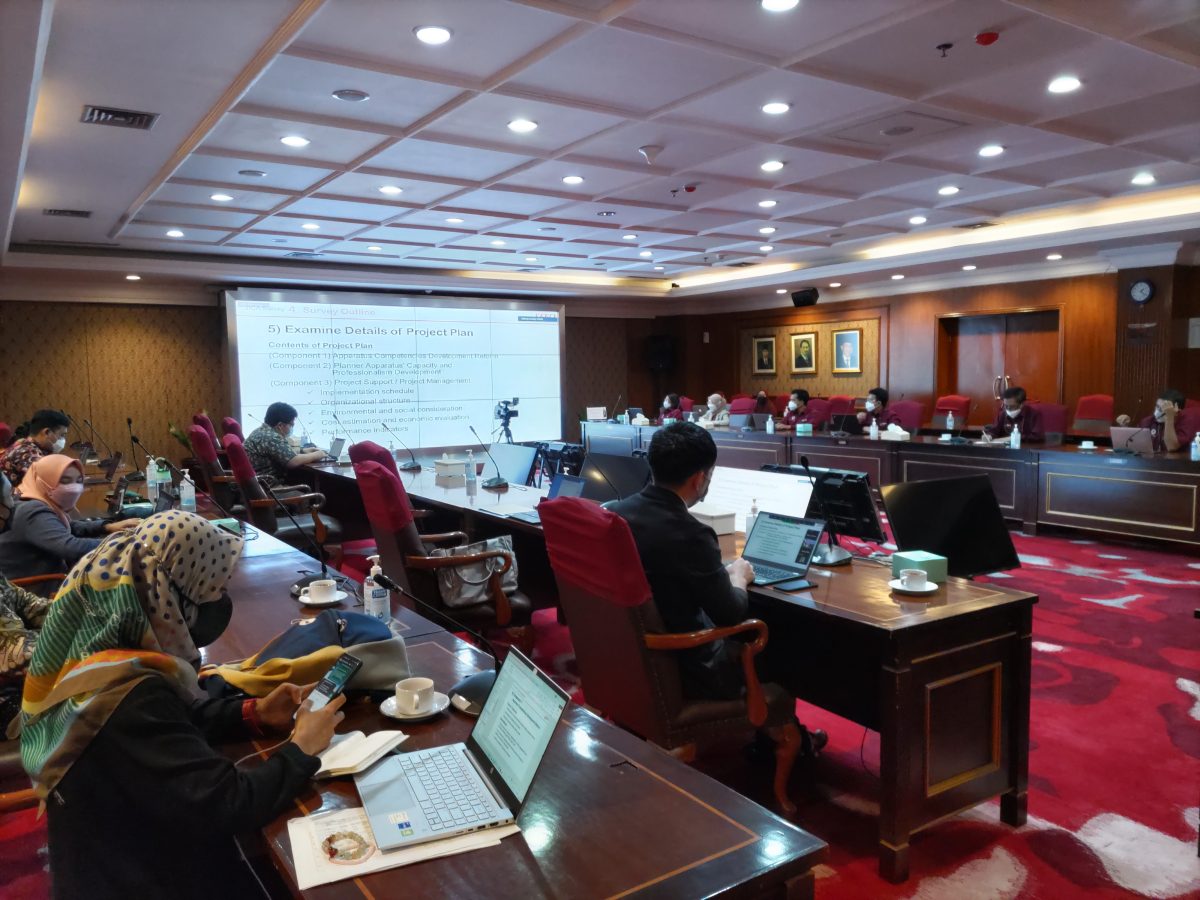Data Collection Survey on Strengthening Apparatus Management and Development in Indonesia

Period : 2022/9 - 2023/8
Client : JICA
Background of the Survey
Government of Indonesia has been planning to nurture competitive, professional, creative and capable governmental officials in order to correspond to the rapid social change, and conducting radical reformation of employee recruitment and capacity building for them. Center for Planners Development, Education and Training (CPDET) of Indonesia’s National Development Planning Agency (Bappenas) has been reforming the system and management for improvement of professional knowledge and capacity among them, and planning to utilize the resources of Japanese organizations based on the previous experiences in Professional Human Resource Development Project (PHRD).
Objectives of the Survey
Confirmation and analysis are expected on the current situation and difficulties of the system of capacity management and improvement, and policies of capacity enhancement, as well as data collection and analysis for the formation of Strengthening Apparatus Management and Development Project (SMART), especially in the field of infrastructure, international relations and politics, and information technology and digitalization so that concrete candidate programs can be proposed to CPDET, and possible forms of cooperation can be proposed to JICA.
Overview of the Survey
In order to grasp the current status of capacity development of governmental officials in Indonesia, data collection was conducted in Japan on policy direction and cooperation system for human resource development among Indonesia’s governmental organizations and related agencies, organizations which target human resources to be trained are enrolling at, difficulties of capacity development of governmental officials, and previous donations and cooperations for the capacity development among Indonesia’s governmental officials provided by other international donors. Then, self-evaluation against the performance and achievements of their staff was done by several ministries and private sectors, and concrete needs for capacity development was also identified through both interview and questionnaire in Indonesia. After that, some Japanese organizations (local governments, universities, ministries, etc.) were interviewed in order to assess the possibility of implementation of various forms of capacity development programs and organize candidate training programs. During the subsequent visits to Indonesia, candidate project structure was proposed consisting of more than 20 sub-components (improvement of training methods, data analysis, management of infrastructure, development of online platforms, On the Job Training in Japan, etc.) through discussion with related departments of Bappenas and other ministries, as well as implementation schedule and financial plan of SMART Project.

